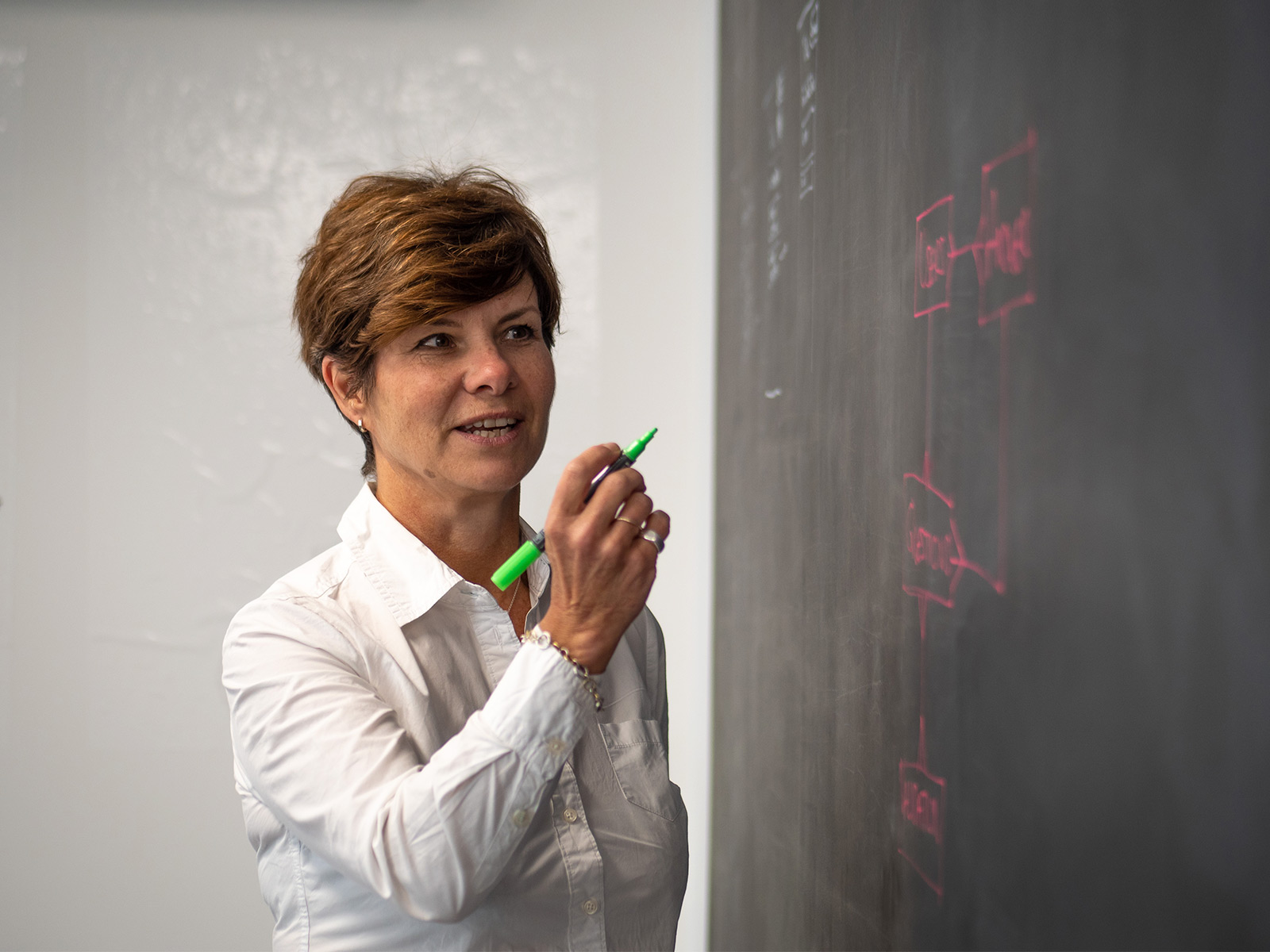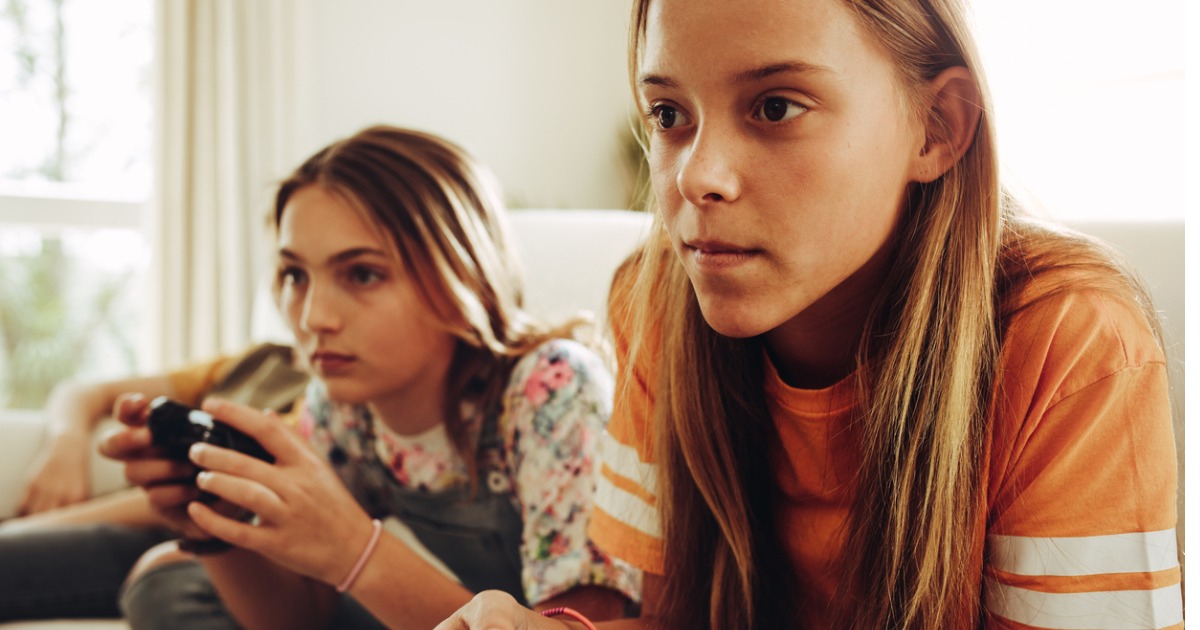The Guardian reported that website and app visits in the UK were up by more than 100% in February 2021, compared with January 2020, spurred by YouTube, TikTok and BBC News. The average daily time spent on apps rose by 15%.
This isn’t particularly shocking when you consider the restrictions in place and bad weather affecting outdoor activities. But it may be deemed worrying to those who view screen time as a negative.
We definitely aren’t saying that excessive screen time is a good thing, particularly in the following areas.
- Sleep - due to the blue light admitted from screens, it tricks our brains into thinking it’s daylight which can cause trouble with sleeping.
- Behaviour - as creatures of habit it doesn’t take long to develop an addiction to looking at screens multiple times throughout the day. This can lead to struggles with engaging in the present and becoming easily distracted.
- Mental health - screen-based entertainment increases central nervous system arousal, which can lead to an amplification of anxiety.
Focussing on the negatives of excessive screen time will only limit children from experiencing the positive effects. And it’s important to define ‘excessive’ on an individual basis. Here are the positives of screen-time.
Developing skills using online gaming
Screen-time is very quickly branded as a passive experience, but this all depends on the content. There are many online games and activities that enhance teamwork, creativity and problem-solving.
A major study, conducted at the Max Planck Institute for Human Development in Berlin, found that playing video games increases grey matter - (essentially, the size of your brain) and helps to refine learned and hardwired skills.
Yes, we’re sure parents have heard their fair share of frustrated remarks from their children when playing online but there’s also an overwhelming amount of conversation, laughter, support and strategy.
Using the internet to create content
Another way to make the internet an active experience is through content creation. Screens have access to numerous apps and websites to create your own content. This includes the major media app Tik Tok which is used for creating, sharing and watching short videos; and has roughly one billion active monthly users.
Tik Tok’s mission is to: “...capture and present the world’s creativity, knowledge, and precious life moments, directly from the mobile phone. TikTok enables everyone to be a creator, and encourages users to share their passion and creative expression through their videos.”
Apps like TikTok harness the power of creativity and can also create communities for shared interests such as dancing, music or art.
There are such a variety of content creators on TikTok that even if you aren’t creating your own content, you can be learning from others. This includes @themindesetcoachuk who shares his expertise on anxiety or @sparketh who shares art tutorials.
Technology as an aid for learning
There are many screens that allow children to learn new information. In fact, research has shown interacting with computers improves both visual intelligence and hand-eye coordination.
The internet provides children with access to a wealth of information allowing them to build up their knowledge and skillset.
So much so that the laptop poverty conversation has widened since the COVID-19 pandemic began and homeschooling/online learning increased. According to data from End Laptop Poverty, children with laptops are 234% more likely to get 5*A-C GCSEs than those without.
This data clearly demonstrates that screen time does positively impact children academically, but it also alarms us that equal opportunities are lacking.
Online workouts for children
And it’s not just academically that children can benefit from screen time, it’s physically too.
There are many Smartphone apps and YouTube videos that encourage children to adopt healthful behaviours, such as regular exercise, healthier food choices and better sleep.
Joe Wicks’ PE workouts on YouTube were a roaring success. On the first day of PE With Joe, more than 900,000 families watched around the world. On the second day, over 955,000 families took part and he broke the world record for the largest streamed workout on YouTube.
We mustn’t forget that this still counts as screen time - it’s just the positive kind.
Communicating virtually with friends and family
We aren’t all fortunate enough to live close to our friends and family - and in the wake of a pandemic, outside your household is already too far.
Technology has allowed us to stay connected with friends, family and colleagues - no matter what the distance. Even when the pandemic subsides, technology is still a powerful vice for connecting with those far away.
For children, it’s also a very important tool for removing physical barriers to social interaction, which can be hard for those who find it hard to make friends.
Many children - and adults too - chat with their friends while online gaming. This has allowed for friendships to be maintained as well as the opportunity to create new ones. This means social skills can continue to develop and the desire for interaction can be fed.
16-year-old Max published his own story in the matter explaining:
“I would say gaming on the Xbox with my friends saved my sanity during the spring lockdown.
I bought a mic just before COVID-19 first struck and it allowed me to chat – almost as if I were face to face – with my friends.
I thought I wasn't going to be able to talk to them in months and would lose relationships, but with live chats, it kept friendships intact and even made them stronger.”
According to a major literature review of evidence relating to children's online activities and safety, 47% of young people use technology to support and promote respect and kindness. This could come in the form of liking or sharing someone else’s post, posting supportive comments and signing an online petition.
There is growing concern about the impact of excessive screen time on children’s mental and emotional development. Paul Howard-Jones, a professor of neuroscience and education at the University of Bristol stressed: “The real issue is what’s being done on the screen.”
As previously stated, we do not condone the excessive use of screens. We do condone the use of physical, virtual, and medical solutions that alleviate mental and physical health problems on an individual basis.
This is why it’s important not to shun screen time, and to recognise the positive effects instead of demonising it all together - because it may just be someone’s non-clinical intervention they were looking for.
 ?>
?>



